Article #20 on the Passion of Jesus Christ
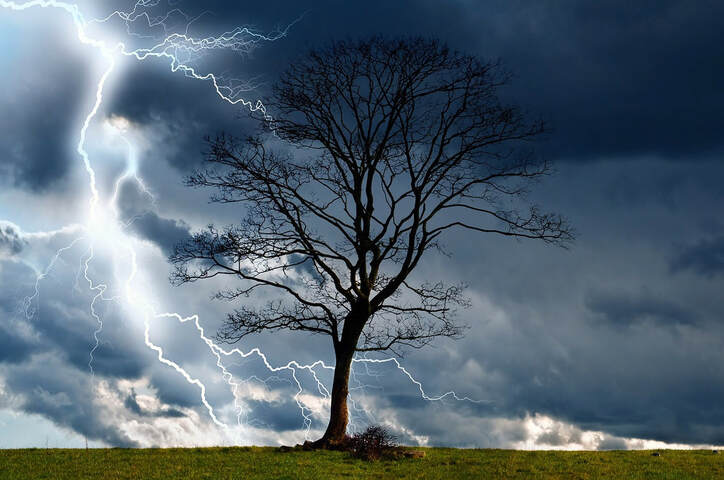
Mount Calvary as a Hill of Contest
“When ye have lifted up the Son of Man, then shall ye know that I AM…” – John 8:28-29
This is the greatest miracle in history. The greatest Man that ever lived foretold and performed it in a victorious display of convincing power to win the greatest contest the world has ever seen. The King of Israel was publicly challenged by the rulers of Judaism to miraculously prove His identity before everyone. Like so many prophets before Him, the Prince of the Prophets didn’t disappoint. However, this momentous occasion simply cannot be understood without the witness of Scripture in the annals of history.
A gigantic adversary emerged out of the armies of Philistia, Goliath by name, who openly challenged the God of Israel and cursed the Jews in the name of false gods. The challenge was one of combat in the name of God. The proof of Deity was in the victory. David heard the challenge and accepted it by faith in the God of Israel. While descending into “the valley of Elah” to face Goliath, the young man David openly declared that he would kill the giant for a very specific purpose: “that all the earth may know that there is a God in Israel” (1 Sam. 17:19, 45-48). The rest is history. Now we know.
Famously, in another well-known challenge, Mount Carmel was the chosen location to prove the existence of the one true God. This time the challenge was made by Elijah, and he was the only prophet of the LORD left in the land of Israel. The challenge was heard and accepted by 400 prophets of Baal. The congregation of Israel gathered there to behold it as these 401 prophets were put to the test. The proof of Deity was in the sign! After the prophets of Baal cried out in prayer continuously all day long, and to no avail, Elijah calmly made his request known to God in a single prayer, saying, “let it be known this day that Thou art God in Israel”, and, “Hear me, O LORD, hear me, that this people may know that Thou art the LORD God, and that Thou hast turned their heart back again.” (1 Kings 18:36-39). The God of Israel answered by fire.
The one true God was not remiss to perform such signs and wonders in the valleys and mountains of Israel. Where is the God of Elijah? He is waiting for Elijah to call upon Him. The same could be said in every generation (2 Chron. 16:9). From the valleys to the mountains, and from sea to shining sea, unknown divine mysteries were often revealed before the eyes of unbelievers in a spectacular fashion. While standing before the Red Sea, the frightened Israelites heard the prophetic word, “…and the Egyptians shall know that I am the LORD” (Ex. 14:4, 17-18). The ripple effect of this miracle reverberated into all nations. While standing before the Jordan River when it had overflowed all its banks, the Jews heard yet another prophetic word that would bring worldwide fame to the Name of God, “…that all the people of the earth might know the hand of the LORD, that it is mighty: that ye might fear the LORD your God for ever.” (Josh. 4:23-24).
Obviously, when God wants mortal men to know something, the LORD is fully capable of making them know it. These declarations signaled forthcoming miracles that left a mark upon history. The Name of the LORD was glorified in this way (let the reader understand), as long as a suitable representative was there to speak on His behalf and to teach the people the commandments of God in any given generation (Hos. 12:13, Amos 3:7, Ps. 25:14). Be they Prophets, Priests, or Kings, they all were compelled to speak and do the same things for the glory of the LORD.
At the consecration of the Temple, Solomon spoke of the very same divine purpose that is apparently burning in the heart of a loving God, namely, “that all people of the earth may know Thy Name, to fear Thee, as do Thy people Israel; and that they may know that this House, which I have builded, is called by Thy Name.” (1 Kings 8:43). Unsurprisingly, this prophetic declaration was uttered before the congregation during a visible display of heavenly miracles.
A gigantic adversary emerged out of the armies of Philistia, Goliath by name, who openly challenged the God of Israel and cursed the Jews in the name of false gods. The challenge was one of combat in the name of God. The proof of Deity was in the victory. David heard the challenge and accepted it by faith in the God of Israel. While descending into “the valley of Elah” to face Goliath, the young man David openly declared that he would kill the giant for a very specific purpose: “that all the earth may know that there is a God in Israel” (1 Sam. 17:19, 45-48). The rest is history. Now we know.
Famously, in another well-known challenge, Mount Carmel was the chosen location to prove the existence of the one true God. This time the challenge was made by Elijah, and he was the only prophet of the LORD left in the land of Israel. The challenge was heard and accepted by 400 prophets of Baal. The congregation of Israel gathered there to behold it as these 401 prophets were put to the test. The proof of Deity was in the sign! After the prophets of Baal cried out in prayer continuously all day long, and to no avail, Elijah calmly made his request known to God in a single prayer, saying, “let it be known this day that Thou art God in Israel”, and, “Hear me, O LORD, hear me, that this people may know that Thou art the LORD God, and that Thou hast turned their heart back again.” (1 Kings 18:36-39). The God of Israel answered by fire.
The one true God was not remiss to perform such signs and wonders in the valleys and mountains of Israel. Where is the God of Elijah? He is waiting for Elijah to call upon Him. The same could be said in every generation (2 Chron. 16:9). From the valleys to the mountains, and from sea to shining sea, unknown divine mysteries were often revealed before the eyes of unbelievers in a spectacular fashion. While standing before the Red Sea, the frightened Israelites heard the prophetic word, “…and the Egyptians shall know that I am the LORD” (Ex. 14:4, 17-18). The ripple effect of this miracle reverberated into all nations. While standing before the Jordan River when it had overflowed all its banks, the Jews heard yet another prophetic word that would bring worldwide fame to the Name of God, “…that all the people of the earth might know the hand of the LORD, that it is mighty: that ye might fear the LORD your God for ever.” (Josh. 4:23-24).
Obviously, when God wants mortal men to know something, the LORD is fully capable of making them know it. These declarations signaled forthcoming miracles that left a mark upon history. The Name of the LORD was glorified in this way (let the reader understand), as long as a suitable representative was there to speak on His behalf and to teach the people the commandments of God in any given generation (Hos. 12:13, Amos 3:7, Ps. 25:14). Be they Prophets, Priests, or Kings, they all were compelled to speak and do the same things for the glory of the LORD.
At the consecration of the Temple, Solomon spoke of the very same divine purpose that is apparently burning in the heart of a loving God, namely, “that all people of the earth may know Thy Name, to fear Thee, as do Thy people Israel; and that they may know that this House, which I have builded, is called by Thy Name.” (1 Kings 8:43). Unsurprisingly, this prophetic declaration was uttered before the congregation during a visible display of heavenly miracles.
“And when all the children of Israel saw how the fire came down, and the glory of the LORD upon the House, they bowed themselves with their faces to the ground upon the pavement, and worshipped, and praised the LORD, saying, For He is good; for His mercy endureth for ever.” - 2 Chron. 7:3
God was doing these miracles for clearly stated reasons. Solomon said, “…that all the people of the earth may know that the LORD is God, and that there is none else.” (1 Kings 8:59-61). Prophets, Priests, and Kings in every generation took notice. The same words were then echoed by Hezekiah at the Temple when the House of God was being threatened with destruction by the armies of Assyria. In a time of desperation, lo and behold: this was the most suitable way to ask God for a miracle! Hezekiah brought this very same divine purpose before the throne of God in prayer, saying, “Now therefore, O LORD our God, I beseech thee, save thou us out of his hand, that all the kingdoms of the earth may know that Thou art the LORD God, even Thou only.” (2 Kings 19:19). Angels were dispatched from Heaven that day to kill 185,000 Assyrian soldiers of the highest rank.
These divine exploits of glory have been making God famous in every millennium. Job and his friends bore witness of the signs and wonders that were prevalent in the first 2,000 years of history (Job 4:7-8, 5:3-5, 24-25, 11:5-6, 18:20, 19:25, 29, 21:19-20, 22:19, 27:12, 34:26-27, 36:9, 36:24-25). In fact, without these miracles, most people wouldn’t come to faith in God. Speaking of this, Jesus said, “Except ye see signs and wonders, ye will not believe.” (John 4:48). Do you disagree? A great cloud of witnesses is in perfect agreement.
Understandably, God wanted Moses to compete with the magicians of Egypt in an epic battle of miracles. For, statedly, neither the Jews nor the Egyptians were capable of believing in or knowing about the LORD without signs and wonders. Speaking of this, David said, “The LORD is known by the judgment which He executeth” (Ps. 9:16). Are you understanding the reading of the Book of Exodus? Moses was very clear about this very thing in scores of dramatic prophecies (Ex. 6:6-7, 7:5, 7:17, 8:10, 22-23, 9:14-16, 29-30, 10:1-2, 11:6-7, 14:4, 17-18, 30-31, 16:6, 12, etc.). The staggering performance of these miracles converted scorners into believers.
The same story could be told about the lonely prophet Ezekiel. Only this time, the man of God was compelled to oppose a multitude of false prophets proudly residing in an apostate Jerusalem. Jerusalem had become a spiritual Egypt in the sight of God (Ezek. 16). It was overrun with idolatry! Therefore, the LORD was determined to plead against it with miraculous exploits of divine judgment, all of which were specifically foretold by Ezekiel scores of times (Ezek. 2:5, 5:13, 6:7, 8-10, 13-14, 7:4, 9, 27, 11:9-12, 12:14-16, 20, 13:9, 14, 23, 14:8, 23, 15:7, 16:62-63, 17:21, 24, 20:26, 38, 42, 44, 48, 21:5, etc.). The same divine purpose continued to resound throughout the record of history. Here, yet again, the unknown God became known in the unveiling of Deity through a spectacular show of glory. Speaking of this, Ezekiel prophetically declared, “…and ye shall know that I am the LORD.” (Ezek. 6:7).
How did the people come to know it? Ezekiel’s lonely ministry in Chaldea would at last be successful. Like Elijah before him, Ezekiel’s identity as a true Prophet would be known by all (Ezek. 2:5). The judgments that were being executed by Babylon would finally be recognized as divine justice (Ezek. 6:8-10). Put yourself in the shoes of the Jewish people who were the residents of Jerusalem during the captivity. Imagine yourself to be one of the survivors looking at the altars of the high places! Imagine yourself looking at the hills and mountains (Ezek. 6:13-14)! Just one look proved Deity.
These divine exploits of glory have been making God famous in every millennium. Job and his friends bore witness of the signs and wonders that were prevalent in the first 2,000 years of history (Job 4:7-8, 5:3-5, 24-25, 11:5-6, 18:20, 19:25, 29, 21:19-20, 22:19, 27:12, 34:26-27, 36:9, 36:24-25). In fact, without these miracles, most people wouldn’t come to faith in God. Speaking of this, Jesus said, “Except ye see signs and wonders, ye will not believe.” (John 4:48). Do you disagree? A great cloud of witnesses is in perfect agreement.
Understandably, God wanted Moses to compete with the magicians of Egypt in an epic battle of miracles. For, statedly, neither the Jews nor the Egyptians were capable of believing in or knowing about the LORD without signs and wonders. Speaking of this, David said, “The LORD is known by the judgment which He executeth” (Ps. 9:16). Are you understanding the reading of the Book of Exodus? Moses was very clear about this very thing in scores of dramatic prophecies (Ex. 6:6-7, 7:5, 7:17, 8:10, 22-23, 9:14-16, 29-30, 10:1-2, 11:6-7, 14:4, 17-18, 30-31, 16:6, 12, etc.). The staggering performance of these miracles converted scorners into believers.
The same story could be told about the lonely prophet Ezekiel. Only this time, the man of God was compelled to oppose a multitude of false prophets proudly residing in an apostate Jerusalem. Jerusalem had become a spiritual Egypt in the sight of God (Ezek. 16). It was overrun with idolatry! Therefore, the LORD was determined to plead against it with miraculous exploits of divine judgment, all of which were specifically foretold by Ezekiel scores of times (Ezek. 2:5, 5:13, 6:7, 8-10, 13-14, 7:4, 9, 27, 11:9-12, 12:14-16, 20, 13:9, 14, 23, 14:8, 23, 15:7, 16:62-63, 17:21, 24, 20:26, 38, 42, 44, 48, 21:5, etc.). The same divine purpose continued to resound throughout the record of history. Here, yet again, the unknown God became known in the unveiling of Deity through a spectacular show of glory. Speaking of this, Ezekiel prophetically declared, “…and ye shall know that I am the LORD.” (Ezek. 6:7).
How did the people come to know it? Ezekiel’s lonely ministry in Chaldea would at last be successful. Like Elijah before him, Ezekiel’s identity as a true Prophet would be known by all (Ezek. 2:5). The judgments that were being executed by Babylon would finally be recognized as divine justice (Ezek. 6:8-10). Put yourself in the shoes of the Jewish people who were the residents of Jerusalem during the captivity. Imagine yourself to be one of the survivors looking at the altars of the high places! Imagine yourself looking at the hills and mountains (Ezek. 6:13-14)! Just one look proved Deity.
“Then shall ye know that I am the LORD, when their slain men shall be among their idols round about their altars, upon every high hill, in all the tops of the mountains, and under every green tree, and under every thick oak, the place where they did offer sweet savour to all their idols.” - Ezek. 6:13
The unbelieving Jews were trapped in a theater of divine glory. The point was proven. The argument was settled. The surviving onlookers were persuaded by seeing the borders of Israel (Ezek. 11:9-12) and the fortified cities of Judah (Ezek. 12:20). Everywhere they looked the divine signs were manifest! Why? Because the desolations were foretold in staggering detail. Therefore, rather than giving credit to the Babylonians (or the idols of Chaldea), the surviving Jews came to realize that the LORD was doing the smiting, as it is written, “…and ye shall know that I am the LORD that smiteth.” (Ezek. 7:4, 9, 27).
Evidently, the God of the Bible was very willing to perform signs and wonders to make people believe. This has proven to be true historically, and especially at the restart of the calendar at the advent of Christ. The coming of the Son of God marked a new era of glory. The Prince of the Prophets eclipsed the glory of everyone in the Old Testament.
Evidently, the God of the Bible was very willing to perform signs and wonders to make people believe. This has proven to be true historically, and especially at the restart of the calendar at the advent of Christ. The coming of the Son of God marked a new era of glory. The Prince of the Prophets eclipsed the glory of everyone in the Old Testament.
“And the Word was made flesh, and dwelt among us, (and we beheld His glory, the glory as of the Only Begotten of the Father,) full of grace and truth.” - John 1:14
At conception, in birth, during adolescence, and in maturity, there were remarkable manifestations of divine majesty (Lk. 1-2). However, when the hour had come for our Lord to enter into public ministry, then everything dramatically changed. Suddenly, there was a relentless display of miracles such that the world had never seen before! This underscores the importance of the occasion. Theoretically speaking, if Jesus of Nazareth didn’t do the miracles that no other man had ever done, then the unbelieving Jews might be guiltless in their rejection of Jesus as the Messiah (Jn. 15:24).
“If I do not the works of my Father, believe Me not. But if I do, though ye believe not Me, believe the works: that ye may know, and believe, that the Father is in me, and I in him.” - John 10:37-38
“Believe me that I am in the Father, and the Father in me: or else believe me for the very works' sake.” - John 14:11
Clearly, the Son of God was on a quest to turn unbelievers into believers. Unapologetically, the miracles were being performed “to the intent [that the people] may believe” (Lk. 11:15). Divine sovereignty was arranging everything in such a way that “the works of God” would be made manifest (Jn. 9:3-5). Namely, because the miraculous works “bear witness” of Jesus Christ (Jn. 10:24-25).
Even the faith of the Messiah’s most beloved disciples was originally inspired and continuously supported by signs and wonders (Jn. 1:45-51; Jn. 6:29, Mk. 6:51, Matt. 14:33). John, as an Evangelist of the Gospel, expressly shows how “the beginning of miracles” was for this purpose; consequentially, it is written, “and his disciples believed on Him” (Jn. 2:11). The miracles continued for 3 years straight, and meanwhile the Lord repeatedly told everyone the divine reason for it. Very boldly, the Son of God said:
Even the faith of the Messiah’s most beloved disciples was originally inspired and continuously supported by signs and wonders (Jn. 1:45-51; Jn. 6:29, Mk. 6:51, Matt. 14:33). John, as an Evangelist of the Gospel, expressly shows how “the beginning of miracles” was for this purpose; consequentially, it is written, “and his disciples believed on Him” (Jn. 2:11). The miracles continued for 3 years straight, and meanwhile the Lord repeatedly told everyone the divine reason for it. Very boldly, the Son of God said:
“Except ye see signs and wonders, ye will not believe.” - Jn. 4:48
These miracles proved the identity of the Son of God. Who is Jesus of Nazareth? That is the real question. Not knowing is damnation (Jn. 4:10). Knowing is salvation (Jn. 4:22, 25-26, 42). Those who had spiritual eyes to see “all the things” that Jesus was doing were then enabled to realize that the Man was the promised Messiah (Jn. 4:45). The elect saw the witness of the Father and believed upon the Son.
“For the Father loveth the Son, and sheweth him all things that himself doeth: and he will shew him greater works than these, that ye may marvel.” - Jn. 5:20
“But I have greater witness than that of John: for the works which the Father hath given me to finish, the same works that I do, bear witness of me, that the Father hath sent me. And the Father himself, which hath sent me, hath borne witness of me.” – Jn. 5:36-37
Clearly, not everyone was happy about the signs and wonders being performed. The most influential Jews were idolatrously hellbent on protecting the traditions that they had invented. So, when Jesus healed a man on the Sabbath day, the people were offended, but the Lord refused to stop working miracles (Jn. 5:17). The spectacular show of glory would continue until everyone marveled exceedingly (Jn. 5:19-20). Why? Because this was the witness of the Father that Jesus Christ was the Son of God (Jn. 5:32, 36-37); therefore, it was essential to the faith of those who would be converted.
“They said therefore unto him, What sign shewest thou then, that we may see, and believe thee? what dost thou work?” - Jn. 6:30
Multitudes followed Jesus solely because “they saw His miracles” (Jn. 6:2). This was a good thing! Hereby, the people were coming to be persuaded that Jesus was the Christ (Jn. 6:14-15). However, a majority of the followers at any given time were insincere and selfish. They were following only because they were being fed through the miracles. The famous Miracle Worker was attractive to them for the personal benefits that could be derived from following (Jn. 6:26-27). Therefore, in hoping to seize upon more earthly blessings, they asked Jesus: “What sign shewest Thou then, that we may see, and believe Thee? What dost Thou work?” (Jn. 6:30). This is the unbeliever’s pretentious quest for faith (Jn. 6:26-36, 40).
“His brethren therefore said unto him, Depart hence, and go into Judaea, that thy disciples also may see the works that thou doest. For there is no man that doeth any thing in secret, and he himself seeketh to be known openly. If thou do these things, shew thyself to the world. For neither did his brethren believe in him.” - Jn. 7:3-5
A similar request was made by Jesus’ very own family members who didn’t believe in Him, only this time they were urging the Lord to do miracles on behalf of others, likely because they were ashamed of His behavior (Jn. 7:3-5). Faithless souls will always be confounded (Jn. 7:16-17). It is inevitable. They marvel at the works but are offended with the Man (Jn. 7:15, 21, 27). Meanwhile, a remnant will go on believing in Jesus Christ without any doubt or confusion (Jn. 7:31, 40-41). Who could doubt the witness of the Father (Jn. 8:17-19)? Sadly, there were several groups of hardened scorners who persisted in unbelief even despite all the miracles. These were the Scribes, Pharisees, Lawyers, Elders, & Chief Priests.
The Greatest Challenge in History
It is only natural for the authority structure of apostate Judaism to feel threatened by the King of Israel. As soon as Jesus Christ cleansed the Temple in the 1st year of His ministry, the office-bearers of the status-quo felt that this was a trespass into their territory.
“Then answered the Jews and said unto him, What sign shewest thou unto us, seeing that thou doest these things? Jesus answered and said unto them, Destroy this Temple, and in three days I will raise it up.” - John 2:18-19
This is the first recorded instance of a public challenge made by the hierarchy of scorners. Strangely, these people were habitually disregarding the abundance of signs that were continually manifest, while posing this question with pretentious sincerity. Meanwhile, during the same visit to Jerusalem, so many miracles were being done that many honest souls “saw the miracles” and believed in Jesus as the Christ (Jn. 2:23).
How did the Lord respond to such impudence? Obviously, the challengers didn’t deserve another miracle. Nevertheless, the challenge was heard and accepted. Yes! Our Lord did not deny these unworthy souls yet another sign to prove His own Divinity. Consecutive encounters with the Jews would make sense of this interaction. The plot of this challenge would only grow with time. However, most people don’t recognize it because they think that Jesus was outrightly refusing to perform another sign. In reality, the exact opposite was true. The scorners were not beyond reach by the Miracle Worker! A great contest was soon to begin.
How did the Lord respond to such impudence? Obviously, the challengers didn’t deserve another miracle. Nevertheless, the challenge was heard and accepted. Yes! Our Lord did not deny these unworthy souls yet another sign to prove His own Divinity. Consecutive encounters with the Jews would make sense of this interaction. The plot of this challenge would only grow with time. However, most people don’t recognize it because they think that Jesus was outrightly refusing to perform another sign. In reality, the exact opposite was true. The scorners were not beyond reach by the Miracle Worker! A great contest was soon to begin.
“Then certain of the Scribes and of the Pharisees answered, saying, Master, we would see a sign from thee. But He answered and said unto them, An evil and adulterous generation seeketh after a sign; and there shall no sign be given to it, but the sign of the prophet Jonas: For as Jonas was three days and three nights in the whale's belly; so shall the Son of Man be three days and three nights in the heart of the earth.” - Matt. 12:38-40
“The Pharisees also with the Sadducees came, and tempting desired him that he would shew them a sign from heaven. He answered and said unto them, When it is evening, ye say, It will be fair weather: for the sky is red. And in the morning, It will be foul weather to day: for the sky is red and lowering. O ye hypocrites, ye can discern the face of the sky; but can ye not discern the signs of the times? A wicked and adulterous generation seeketh after a sign; and there shall no sign be given unto it, but the sign of the prophet Jonas. And he left them, and departed.” - Matt. 16:1-4
The Scribes and Pharisees were uniquely hardened in their hearts. They could not discern “the signs of the times” in the abundance of miracles taking place. Therefore, they proceeded to challenge Jesus to perform yet another sign. Graciously, our Lord accepted the challenge. In other words, Jesus Christ did not refuse to perform any signs before the challengers. Pay careful attention to this marvelous moment in history as the rulers of the Jews publicly challenged the King of the Jews! The public challenge was made, and then the challenge was accepted by our Lord. He said that there would be “no sign” except one in particular, the same which He called “the sign of the prophet Jonah” (Matt. 12:38-40, Matt. 16:1, 4), which is the very same sign being declared by the Messiah from the beginning, when He said, “Destroy this Temple, and in three days I will raise it up.” (Jn. 2:19).
Coincidently, the Jews misunderstood the prophetic sign being foretold. They thought that Jesus of Nazareth was talking about destroying the Temple constructed by Zerubbabel and remodeled by Herod. The patriotic Jews felt threatened by this possibility. Things escalated over the years until everything came to a climax at Calvary. Ultimately, this became the hill of contest! This very same sign in question was then brought to the attention of our Lord as the foremost accusation presented to the Sanhedrin, and then upon being condemned and crucified, it evolved into yet another challenge to the Son of God.
Coincidently, the Jews misunderstood the prophetic sign being foretold. They thought that Jesus of Nazareth was talking about destroying the Temple constructed by Zerubbabel and remodeled by Herod. The patriotic Jews felt threatened by this possibility. Things escalated over the years until everything came to a climax at Calvary. Ultimately, this became the hill of contest! This very same sign in question was then brought to the attention of our Lord as the foremost accusation presented to the Sanhedrin, and then upon being condemned and crucified, it evolved into yet another challenge to the Son of God.
“…This fellow said, I am able to destroy the Temple of God, and to build it in three days.” - Matt. 26:61
“And they that passed by reviled Him, wagging their heads, And saying, Thou that destroyest the temple, and buildest it in three days, save thyself. If thou be the Son of God, come down from the Cross.” - Matt. 27:39-40
The rulers of Judaism were successful in subverting the people over the past 3 years. Evidently, the original challenge to perform a sign, alongside a misinterpretation of our Lord’s response, was noised abroad among the multitudes. Therefore, with respect to the first challenge, the people reviled Jesus by inviting Him to prove His Messianic identity once and for all by coming down from the Cross. However, the Jews were unknowingly playing their part in the greater picture that was soon to be brought into focus with undeniable clarity.
Everything was going exactly according to the divine plan of Heaven. The aforementioned words of mockery were shouted at Jesus at around 12 noon when He was lifted up on the Cross. The contest was on! Victory seemed impossible because the Jews had never been so hardened in unbelief. Nevertheless, our Lord knew exactly what was about to happen over the next 3 hours. The moment of victory was foretold by Christ in a very clear word of prophecy.
Everything was going exactly according to the divine plan of Heaven. The aforementioned words of mockery were shouted at Jesus at around 12 noon when He was lifted up on the Cross. The contest was on! Victory seemed impossible because the Jews had never been so hardened in unbelief. Nevertheless, our Lord knew exactly what was about to happen over the next 3 hours. The moment of victory was foretold by Christ in a very clear word of prophecy.
“Then said Jesus unto them, When ye have lifted up the Son of Man, then shall ye know that I AM, and that I do nothing of Myself; but as My Father hath taught Me, I speak these things. And He that sent Me is with Me: the Father hath not left Me alone; for I do always those things that please Him.” - John 8:28-29
Apparently, the same people who were in the process of killing the Son of God would then come to realize the identity of Jesus Christ at the crucifixion scene. Remarkably, Jesus said, “When ye have lifted up the Son of Man, then shall ye know that I AM…” (Jn. 8:28-29). Compare this promise with the statement, “Destroy this Temple…” (Jn. 2:19). Many of the same people that were doing the killing would then become believers! Are you surprised?
Simultaneously, the killers would come to realize several other things about the Crucified One. Look carefully at the word of prophecy originally given by Christ! Not one word of this prophetic statement of victory should go unnoticed. Besides coming to recognize that Jesus is the I AM, the people would come to know…
Simultaneously, the killers would come to realize several other things about the Crucified One. Look carefully at the word of prophecy originally given by Christ! Not one word of this prophetic statement of victory should go unnoticed. Besides coming to recognize that Jesus is the I AM, the people would come to know…
“…that I do nothing of Myself; but as My Father hath taught Me, I speak these things. And He that sent Me is with Me: the Father hath not left Me alone; for I do always those things that please Him.” – Jn. 8:28-29
Coming to know these things is a startling contrast to how things were looking at noon on Mount Calvary. The same people who were leveraging the Cross of Rome against Jesus of Nazareth, while boldly declaring Him to be forsaken of God as a false prophet (because of the things that He said), would then come to realize that the Father is with Jesus of Nazareth, and that the Father had not left Him alone at all, not even at the Cross, and that the things that Jesus had said were according to the will of God. This is what it means to behold the Cross of Rome and see Jehovah’s Tree.
This is a dramatic change of perspective. In the beginning, the rulers of Judaism were in perfect agreement with the Cross of Rome. The government of Rome condemned Jesus to death as a criminal. The crimes of the crucified ones were written on signs and nailed above the heads of those who were deemed worthy of such punishment. Rome hoped to strike fear in the hearts of the people so that no such crimes would ever be committed again. With respect to Jesus being crucified, the Jews were happy with how things were shaping out. By virtue of the Cross of Rome, the Jews hoped to repel all men away from Jesus of Nazareth, and hereby they would secure their own rule as the leaders of Judaism.
Everyone, both Jews and Gentiles, were united against Jesus of Nazareth on the hill of Calvary. The spectacle was on, but the contest wasn’t over! The celebration of the Jews would prove to be premature. The unbelievers were boasting in the Cross of Rome, that hereby all men were being turned away from Jesus of Nazareth. They claimed the hill in victory and were sure that all men would denounce Jesus as the Messiah! The situation seemed bleak and hopeless. The scene was dark. Victory for Jesus appeared humanly impossible. Nevertheless, a few more hours were still to come. There was still plenty of time to overturn the word of blasphemy in a divine act of glory that would reduce many persecutors to tears of remorse.
This is a dramatic change of perspective. In the beginning, the rulers of Judaism were in perfect agreement with the Cross of Rome. The government of Rome condemned Jesus to death as a criminal. The crimes of the crucified ones were written on signs and nailed above the heads of those who were deemed worthy of such punishment. Rome hoped to strike fear in the hearts of the people so that no such crimes would ever be committed again. With respect to Jesus being crucified, the Jews were happy with how things were shaping out. By virtue of the Cross of Rome, the Jews hoped to repel all men away from Jesus of Nazareth, and hereby they would secure their own rule as the leaders of Judaism.
Everyone, both Jews and Gentiles, were united against Jesus of Nazareth on the hill of Calvary. The spectacle was on, but the contest wasn’t over! The celebration of the Jews would prove to be premature. The unbelievers were boasting in the Cross of Rome, that hereby all men were being turned away from Jesus of Nazareth. They claimed the hill in victory and were sure that all men would denounce Jesus as the Messiah! The situation seemed bleak and hopeless. The scene was dark. Victory for Jesus appeared humanly impossible. Nevertheless, a few more hours were still to come. There was still plenty of time to overturn the word of blasphemy in a divine act of glory that would reduce many persecutors to tears of remorse.
“And sitting down they watched him there...” – Matt. 27:36-37
“And the people stood beholding.” – Lk. 23:35
“And they that passed by reviled him, wagging their heads…” – Matt. 27:39 (Mk. 15:29)
“Let Christ the King of Israel descend now from the Cross, that we may see and believe. And they that were crucified with him reviled him.” - Mark 15:32
“Some of them that stood there, when they heard that, said…” – Matt. 27:47 (Mk. 15:35)
“The rest said, Let be, let us see…” – Matt. 27:49
“Let alone, let us see whether Elias will come to take Him down.” - Mk. 15:36
“Now when the centurion, and they that were with him, watching Jesus, saw…” - Matt. 27:54 (Mk. 15:39, Lk. 23:47)
“And many women were there beholding afar off…” – Matt. 27:55 (Lk. 23:49)
“There were also women looking on afar off…” – Mk. 15:40
The Roman Empire perfected the art of torture in public executions. The Cross of Rome was reserved for the worst of criminals. It was designed to make a statement. Therefore, when it lifted up men in crucifixion, Rome hoped that it would be seen by as many people as possible for as long as possible. The ghastly sight was supposed to traumatize the spectators! Upon being lifted up 8 to 15 feet from the earth in an elevated location, like the hill of Golgotha, the choice instrument of execution would continuously torture its subjects for many hours until death.
This is why the mockers reveled in the Cross of Rome. The rulers were drunk with their own power and blind to what was about to take place. The Jews gathered at the Cross to personally heap contempt and scorn upon Jesus Christ. Literally, the challengers were leveraging the Cross of Rome against Jesus of Nazareth, while boldly declaring Him to be forsaken of God as a false prophet. To them the Cross of Rome was the evidence! Nevertheless, a miraculous show of divine revelation would soon open the eyes of many spectators to behold something completely different.
This is why the mockers reveled in the Cross of Rome. The rulers were drunk with their own power and blind to what was about to take place. The Jews gathered at the Cross to personally heap contempt and scorn upon Jesus Christ. Literally, the challengers were leveraging the Cross of Rome against Jesus of Nazareth, while boldly declaring Him to be forsaken of God as a false prophet. To them the Cross of Rome was the evidence! Nevertheless, a miraculous show of divine revelation would soon open the eyes of many spectators to behold something completely different.
“And I, if I be lifted up from the earth, will draw all men unto Me.” - John 12:32
Neither the Jews nor the Gentiles present at Calvary were drawn to the Lord because of the Cross. It appeared to them that the Cross of Rome had defeated the Man! But all that was about to change. Literally, by reason of the Cross of Rome, the people were more persuaded than ever that Jesus of Nazareth was a false prophet, but when everything is said and done over the next 3 hours, from 12 to 3 P.M., many unbelievers will begin to see the most staggering vision of their lifetime.
“And all the people that came together to that sight, beholding the things which were done, smote their breasts, and returned.” - Luke 23:48
Many sinners stopped celebrating and began crying. The noisy sound of reveling was replaced with strong regret and remorse. Many unbelievers began to make confessions of faith in dread amazement at what just happened! All the people, both Jews and Gentiles, even those who lately blasphemed, were dramatically abased and visibly emotional when they beheld “the things which were done” at the death of the Crucified One (Lk. 23:48).
The Thief on the Cross was the first among the number to repent and believe, as demonstrated by the worthy confession he made before the multitude (Lk. 23:39-43). A short while later, many others became stricken with conviction through beholding the things that were said and done in the final minutes leading up to and following the death of Jesus Christ when a combination of signs and wonders were performed conveying a powerful message.
Many people on the hill of contest were feeling like Malchus felt in the Garden of Gethsemane, who would not dare to speak against the Lord anymore; the ear that was touched by the Son of God was spiritually hearing something that others couldn’t hear, therefore Malchus was conspicuously absent when everyone else was persecuting Peter at the palace of the High Priest (Jn. 18:10, Lk. 22:51, Jn. 18:26).
Simon the Cyrene became attracted to Jesus of Nazareth after coming into very close contact with the Man. Only God knows what transpired between the two in the half mile journey to the hill of Golgotha! It is left to our imagination. Suffice it to say, nobody who picks up their Cross and follows Jesus Christ will be disappointed in the experience. All we know is that Simon, his son Rufus, and his Wife all became outstanding converts, as is indicated by Scripture (Matt. 27:32, Mk. 15:21, Lk. 23:26, Rom. 16:13).
Even an ignorant and unbelieving Centurion of Rome was made to confess, “Truly this Man was the Son of God” (Mk. 15:39, Lk. 23:47). How do you think he came to such a persuasion? Amazingly, many other thoroughly pagan Roman Soldiers under the Centurion’s command joined in this noble confession. These were the same soldiers that recently abused Christ in the Praetorium (Matt. 27:27-31, Mk. 15:16-20)! Evidently, according to Matthew 27:54, they all came to the same shocking realization that Jesus was the Christ, and confessed, “Truly this was the Son of God.”
High ranking Jews were also responding by faith, like Joseph of Arimathaea and Nicodemus (Jn. 19:38; Jn. 3:1-21, 7:47-53, 19:39-42). A mighty move of God was taking place! Before too long, many Pharisees would be truly converted to Christ, even despite the great cost they would have to pay in becoming disciples of Jesus (Acts 15:5).
Did ever such a diverse congregation of scorners and blasphemers come to faith in Christ on this momentous occasion at the hill of Calvary? Amazingly, the strongest adversaries of our Lord were all given the same sign so that they might come to faith in the Son of God (Jn. 2:18-19, Matt. 12:38-40, 16:1-4). The greatest of miracles in the arsenal were saved as a finale to reach the unreachable. Such miracles would continue to confirm the identity of the Son of God, not only at the Cross, but in the resurrection three days later, and for the next 40 days in a series of shocking personal visitations, until thousands in Jerusalem came to believe on the Day of Pentecost that Jesus of Nazareth resurrected from the dead and ascended into Heaven.
A showdown between Moses and the Magicians of Egypt was lackluster compared to this glorious moment at the Cross of Christ and the miracles that followed. A standoff between Elijah and the Prophets of Baal was inglorious compared to this finale of miracles. The Prophets of Baal fled from Elijah as defeated adversaries who were doomed to die. Their broken faith in false gods made them flee the mountain of contest seeking refuge. In this respect, Mount Calvary dwarfs Mount Carmel! Can you see it?
A similar scene was manifest at the ultimate hill of contest. The aforementioned Jews and Romans, alongside an unknown multitude, were so smitten with conviction that they likely fled from the scene in a hurry because the remorse coming over them was so strong. Look again at the testimony provided in Luke 23:48! Luke, as an Evangelist, purposely emphasized this by providing some very shocking details about what the scene looked like in the aftermath of the miracles.
Many people on the hill of contest were feeling like Malchus felt in the Garden of Gethsemane, who would not dare to speak against the Lord anymore; the ear that was touched by the Son of God was spiritually hearing something that others couldn’t hear, therefore Malchus was conspicuously absent when everyone else was persecuting Peter at the palace of the High Priest (Jn. 18:10, Lk. 22:51, Jn. 18:26).
Simon the Cyrene became attracted to Jesus of Nazareth after coming into very close contact with the Man. Only God knows what transpired between the two in the half mile journey to the hill of Golgotha! It is left to our imagination. Suffice it to say, nobody who picks up their Cross and follows Jesus Christ will be disappointed in the experience. All we know is that Simon, his son Rufus, and his Wife all became outstanding converts, as is indicated by Scripture (Matt. 27:32, Mk. 15:21, Lk. 23:26, Rom. 16:13).
Even an ignorant and unbelieving Centurion of Rome was made to confess, “Truly this Man was the Son of God” (Mk. 15:39, Lk. 23:47). How do you think he came to such a persuasion? Amazingly, many other thoroughly pagan Roman Soldiers under the Centurion’s command joined in this noble confession. These were the same soldiers that recently abused Christ in the Praetorium (Matt. 27:27-31, Mk. 15:16-20)! Evidently, according to Matthew 27:54, they all came to the same shocking realization that Jesus was the Christ, and confessed, “Truly this was the Son of God.”
High ranking Jews were also responding by faith, like Joseph of Arimathaea and Nicodemus (Jn. 19:38; Jn. 3:1-21, 7:47-53, 19:39-42). A mighty move of God was taking place! Before too long, many Pharisees would be truly converted to Christ, even despite the great cost they would have to pay in becoming disciples of Jesus (Acts 15:5).
Did ever such a diverse congregation of scorners and blasphemers come to faith in Christ on this momentous occasion at the hill of Calvary? Amazingly, the strongest adversaries of our Lord were all given the same sign so that they might come to faith in the Son of God (Jn. 2:18-19, Matt. 12:38-40, 16:1-4). The greatest of miracles in the arsenal were saved as a finale to reach the unreachable. Such miracles would continue to confirm the identity of the Son of God, not only at the Cross, but in the resurrection three days later, and for the next 40 days in a series of shocking personal visitations, until thousands in Jerusalem came to believe on the Day of Pentecost that Jesus of Nazareth resurrected from the dead and ascended into Heaven.
A showdown between Moses and the Magicians of Egypt was lackluster compared to this glorious moment at the Cross of Christ and the miracles that followed. A standoff between Elijah and the Prophets of Baal was inglorious compared to this finale of miracles. The Prophets of Baal fled from Elijah as defeated adversaries who were doomed to die. Their broken faith in false gods made them flee the mountain of contest seeking refuge. In this respect, Mount Calvary dwarfs Mount Carmel! Can you see it?
A similar scene was manifest at the ultimate hill of contest. The aforementioned Jews and Romans, alongside an unknown multitude, were so smitten with conviction that they likely fled from the scene in a hurry because the remorse coming over them was so strong. Look again at the testimony provided in Luke 23:48! Luke, as an Evangelist, purposely emphasized this by providing some very shocking details about what the scene looked like in the aftermath of the miracles.
“And all the people that came together to that sight, beholding the things which were done, smote their breasts, and returned.” - Luke 23:48
This was a gracious defeat. While beholding the Cross of Rome they saw Jehovah’s Tree. Do you see it? There is an ancient Jewish origin to the Cross. The Laws of Jehovah required cursed men to be nailed upon wood and lifted up, but the reasons for this were radically different than the philosophy of Rome in public executions. Paul spoke of this directly in Galatians 3:13 while quoting from Deuteronomy 21:21-23. The manner of “curse” that was divinely imposed upon Jesus Christ was neither pagan, secular, nor Roman; rather, it legally originated from God according to the Law in the Old Testament.
“Christ hath redeemed us from the curse of the Law, being made a curse for us: for it is written, Cursed is every one that hangeth on a Tree:” – Gal. 3:13
“And all the men of his city shall stone him with stones, that he die: so shalt thou put evil away from among you; and all Israel shall hear, and fear. And if a man have committed a sin worthy of death, and he be to be put to death, and thou hang him on a Tree: His body shall not remain all night upon the Tree, but thou shalt in any wise bury him that day; (for he that is hanged is accursed of God;) that thy land be not defiled, which the LORD thy God giveth thee for an inheritance.” – Deut. 21:21-23
The criminals of Israelite society were first stoned to death in a public execution, and then upon being killed the dead bodies of these people were nailed to Trees. The divine instruction to “hang him on a Tree” should capture our attention! The fact that the Jews practiced public executions by stoning is common knowledge among learned men. However, the legal employment of the Tree is a particular aspect of their public executions that is generally overlooked. Furthermore, this detail is not an obscure subject of Scripture. The exact purpose of the Tree is emphasized in several recorded events of biblical history.
“And Israel joined himself unto Baalpeor: and the anger of the LORD was kindled against Israel. And the LORD said unto Moses, Take all the heads of the people, and hang them up before the LORD against the sun, that the fierce anger of the LORD may be turned away from Israel. And Moses said unto the judges of Israel, Slay ye every one his men that were joined unto Baalpeor.” – Num. 25:3-5
This illustrious moment should change how you interpret the Cross of Christ. The Book of the Law in the Old Testament contained typological solutions to sin problems. Normally, various instructions were given in Exodus, Leviticus, Numbers, & Deuteronomy teaching the people how to make an Atonement. An Atonement is something that quenches or satisfies the wrath of God, turning away the anger of the LORD from the people. Mostly, these instructions pertained to Animal Sacrifices of various kinds: Lambs (Ex. 12; Ex. 29:38-43), Goats (Lev. 4:24; Lev. 16), Rams (Ex. 29:33, Num. 5:8), Bullocks (Ex. 29:36-37, Lev. 4:20, Num. 8:12), & Cattle (Lev. 1:4). Each one of these sacrifices were made “before the LORD” (Ex. 29:42, Lev. 4:4, 6, 15, 17, 6:7, 16:7, 10, 12, 13, 18, 30), because the wrath of God is a vertical issue that exists between people and God.
However, in rare cases, like what happened in Numbers 25:3-5, the fierce anger of the LORD was kindled against Israel because of certain provocative sinners in the midst, and these individuals needed to be taken, killed, and nailed to Trees. Evidently, unless these people were hung up “before the LORD”, nothing else would succeed to turn away the wrath of God. You could call it an emergency situation! Remarkably, this practice can also be observed during the conquest of the Promised Land. However, in this situation, the Kings of Canaan were the provocative sinners that warranted this judgment.
However, in rare cases, like what happened in Numbers 25:3-5, the fierce anger of the LORD was kindled against Israel because of certain provocative sinners in the midst, and these individuals needed to be taken, killed, and nailed to Trees. Evidently, unless these people were hung up “before the LORD”, nothing else would succeed to turn away the wrath of God. You could call it an emergency situation! Remarkably, this practice can also be observed during the conquest of the Promised Land. However, in this situation, the Kings of Canaan were the provocative sinners that warranted this judgment.
“And the King of Ai he hanged on a Tree until eventide: and as soon as the sun was down, Joshua commanded that they should take his carcase down from the Tree, and cast it at the entering of the gate of the city, and raise thereon a great heap of stones, that remaineth unto this day.” - Josh. 8:29
“And it came to pass, when they brought out those Kings unto Joshua, that Joshua called for all the men of Israel, and said unto the Captains of the men of war which went with him, Come near, put your feet upon the necks of these Kings. And they came near, and put their feet upon the necks of them. And Joshua said unto them, Fear not, nor be dismayed, be strong and of good courage: for thus shall the LORD do to all your enemies against whom ye fight. And afterward Joshua smote them, and slew them, and hanged them on five Trees: and they were hanging upon the Trees until the evening. And it came to pass at the time of the going down of the sun, that Joshua commanded, and they took them down off the Trees, and cast them into the cave wherein they had been hid, and laid great stones in the cave's mouth, which remain until this very day.” – Josh. 10:24-27
Anytime the Tree becomes necessary in biblical history you know the situation was dire. The wrath of God was so fierce and unrelenting that the people were left with no other recourse. Why was God so angry with the Canaanites? The perverse immorality of the Canaanites had become so hellish that no survivors were tolerated by God (Gen. 15:16; Lev. 18; Lev. 20). An angry God went to Egypt and acquired an Army, and then marched from Egypt to Canaan to furiously destroy the Canaanites by effectively removing them from the face of the earth (Ex. 6:26, 7:4, 12:17, 41, 51; Num. 1:3; Deut. 20:9).
Jehovah Sabaoth, the LORD of Hosts, was so angry with the Canaanites that everyone and everything that saw the LORD coming in the march was terrified to look upon Him (Ps. 77:16-18, 106:9, 114:3-7; Hab. 3:7-15)! Literally, in being exceedingly ailed at the sight of the LORD, the Red Sea, the hills and mountains of the Wilderness, and the Jordan River all got out of the way of the incoming presence of Deity at the head of the march! One glimpse of the anger on the Face of God would have made you flee away too. Can you imagine the furious countenance of God fixated on you? It was the prophet Habakkuk who emphasized that the Canaanites were the target of this unique expression of divine wrath all along the journey (Hab. 3:7-15).
Literally, God angrily demanded that these Kings would be nailed on Trees and hung up before the LORD. The furious eyes of Deity wanted to look upon them! The Kings were chief among the transgressors in Canaan. They acted as champions of the rebellion. Therefore, according to Joshua 8:29 & 10:24-27, the burning wrath of divine justice wasn’t satisfied, neither could it be quenched, unless these men were nailed on Trees and hung up “before the LORD”. In this respect, the Tree was the last resort of an unsolvable problem. Nothing else could stop the wrath of God. Therefore, of all the places on earth, the Tree was a dreadful place where the terrible majesty of an angry God thunders against specifically targeted adversaries! Let all mortal men tremble to behold it.
Finally, in visiting one more event of biblical history, the testimony of Inspiration will be complete. After the Promised Land was fully occupied by Israel, various internal problems of sin and divine wrath continued to trouble the people. The problems reoccurred whenever the Israelites behaved like spiritual Canaanites. The day came when David perceived that there was wrath upon Israel, but he didn’t know the cause of it. Therefore, David “enquired of the LORD” (2 Sam. 21:1), and he was told that the reason for the wrath of God pertained to the sins of Saul. It was then that David was inspired to utter the following words.
Jehovah Sabaoth, the LORD of Hosts, was so angry with the Canaanites that everyone and everything that saw the LORD coming in the march was terrified to look upon Him (Ps. 77:16-18, 106:9, 114:3-7; Hab. 3:7-15)! Literally, in being exceedingly ailed at the sight of the LORD, the Red Sea, the hills and mountains of the Wilderness, and the Jordan River all got out of the way of the incoming presence of Deity at the head of the march! One glimpse of the anger on the Face of God would have made you flee away too. Can you imagine the furious countenance of God fixated on you? It was the prophet Habakkuk who emphasized that the Canaanites were the target of this unique expression of divine wrath all along the journey (Hab. 3:7-15).
Literally, God angrily demanded that these Kings would be nailed on Trees and hung up before the LORD. The furious eyes of Deity wanted to look upon them! The Kings were chief among the transgressors in Canaan. They acted as champions of the rebellion. Therefore, according to Joshua 8:29 & 10:24-27, the burning wrath of divine justice wasn’t satisfied, neither could it be quenched, unless these men were nailed on Trees and hung up “before the LORD”. In this respect, the Tree was the last resort of an unsolvable problem. Nothing else could stop the wrath of God. Therefore, of all the places on earth, the Tree was a dreadful place where the terrible majesty of an angry God thunders against specifically targeted adversaries! Let all mortal men tremble to behold it.
Finally, in visiting one more event of biblical history, the testimony of Inspiration will be complete. After the Promised Land was fully occupied by Israel, various internal problems of sin and divine wrath continued to trouble the people. The problems reoccurred whenever the Israelites behaved like spiritual Canaanites. The day came when David perceived that there was wrath upon Israel, but he didn’t know the cause of it. Therefore, David “enquired of the LORD” (2 Sam. 21:1), and he was told that the reason for the wrath of God pertained to the sins of Saul. It was then that David was inspired to utter the following words.
“And wherewith shall I make the Atonement…?” – 2 Sam. 21:3
This time the LORD required men, not animals, for the making of the Atonement. A total of 7 sons from Saul’s family were then taken and given to the Gibeonites to be killed, exactly as they said: “…we will hang them up unto the LORD in Gibeah of Saul” (2 Sam. 21:6). The record of history tells us what happened in this marvelous moment of prophetic typology! It was written, “…and they hanged them in the hill before the LORD” (2 Sam. 21:9). Sound familiar? This amazing prophecy is speaking to us about the use of the Tree in typology.
All these men on Trees died in their sins, and for their sins, and thus the wrath that was quenched pertained to the exacting of justice upon these individuals, but Jesus Christ died for our sins, and even for the sins of the whole world (1 Jn. 2:2); literally, He died to take away our sins, and to quench the furious heat of eternal wrath, and this came by the making of an Atonement where God Himself provided the offering: the Just for the unjust (Heb. 10:4, 1 Jn. 3:5, 2 Cor. 5:21, 1 Pet. 3:18; Gen. 22:8). You have heard about the Cross of Rome. Now do you see Jehovah’s Tree? Behold the Cross of Rome and see Jehovah’s Tree!
The Cross of Rome is an execution device that lifted up sinners before men, to be seen by men, but Jehovah’s Tree lifted up the spotless Lamb of God “before the LORD”, to be seen by God, rather than to be seen by men. If men are to be saved by the sight of it, it is because they are beholding the Cross of Rome and seeing Jehovah’s Tree. Earthly societies gathered at the Cross of Rome to project their anger and hatred upon criminals utterly forsaken by all and hanging there to die. This is an ordinary occurrence in the Roman Empire. However, at the Cross of Christ, the divine being of God the Father was especially manifest in the pouring out of divine wrath upon a most sacred Sacrifice, in the offering of the Only Begotten Son of God, because while the Man was hanging there on the Cross of Rome it was legally performing the mechanism of Jehovah’s Tree.
Therefore, the Cross of Christ was different than your average Roman crucifixion. Nobody had ever been crucified like Jesus Christ! The dark clouds of divine wrath overshadowed the Man who was lifted up before the LORD on the hill of Calvary. The furious eyes of God were fixated on the Crucified One! Furthermore, all of this was open before the gaze of the Son of God while He was hanging on the Cross. In this unique case, the Cross of Rome found legal significance as Jehovah’s Tree. The Cross of Rome became the vehicle that a sovereign God used to fulfill Holy Scripture in the lawful use of the Tree.
The purpose of the Tree in the Kingdom of God followed the laws of Atonement. God was the main character in the exercise. In every case the chosen sacrifice was slain “before the LORD” (Ex. 29:42, Lev. 4:4, 6, 15, 17, 6:7, 16:7, 10, 12, 13, 18, 30). The objective of the offering was to visibly bring the sacrifice before the furious eyes of an angry God so that justice would look upon it and be appeased.
The selection process of suitable sacrifices was meticulously described by God in the Law. The ceremonious process of imputing the sins of the people into the sacrifices was done “before the LORD” (Lev. 4:15). Only then were the sacrifices ready to be presented as an offering (Lev. 16:7, 10). Accordingly, the people were then commanded to “kill” the sacrifices “before the LORD” (Lev. 4:4). Furthermore, specific instructions were given concerning the freshly shed blood in how it needed to be sprinkled “before the LORD” (Lev. 4:6, 17). Finally, if forgiveness was indeed granted to the people as a result of successfully completing the “Atonement”, it was only because the legal process was authentically accomplished “before the LORD” (Lev. 6:7).
All these men on Trees died in their sins, and for their sins, and thus the wrath that was quenched pertained to the exacting of justice upon these individuals, but Jesus Christ died for our sins, and even for the sins of the whole world (1 Jn. 2:2); literally, He died to take away our sins, and to quench the furious heat of eternal wrath, and this came by the making of an Atonement where God Himself provided the offering: the Just for the unjust (Heb. 10:4, 1 Jn. 3:5, 2 Cor. 5:21, 1 Pet. 3:18; Gen. 22:8). You have heard about the Cross of Rome. Now do you see Jehovah’s Tree? Behold the Cross of Rome and see Jehovah’s Tree!
The Cross of Rome is an execution device that lifted up sinners before men, to be seen by men, but Jehovah’s Tree lifted up the spotless Lamb of God “before the LORD”, to be seen by God, rather than to be seen by men. If men are to be saved by the sight of it, it is because they are beholding the Cross of Rome and seeing Jehovah’s Tree. Earthly societies gathered at the Cross of Rome to project their anger and hatred upon criminals utterly forsaken by all and hanging there to die. This is an ordinary occurrence in the Roman Empire. However, at the Cross of Christ, the divine being of God the Father was especially manifest in the pouring out of divine wrath upon a most sacred Sacrifice, in the offering of the Only Begotten Son of God, because while the Man was hanging there on the Cross of Rome it was legally performing the mechanism of Jehovah’s Tree.
Therefore, the Cross of Christ was different than your average Roman crucifixion. Nobody had ever been crucified like Jesus Christ! The dark clouds of divine wrath overshadowed the Man who was lifted up before the LORD on the hill of Calvary. The furious eyes of God were fixated on the Crucified One! Furthermore, all of this was open before the gaze of the Son of God while He was hanging on the Cross. In this unique case, the Cross of Rome found legal significance as Jehovah’s Tree. The Cross of Rome became the vehicle that a sovereign God used to fulfill Holy Scripture in the lawful use of the Tree.
The purpose of the Tree in the Kingdom of God followed the laws of Atonement. God was the main character in the exercise. In every case the chosen sacrifice was slain “before the LORD” (Ex. 29:42, Lev. 4:4, 6, 15, 17, 6:7, 16:7, 10, 12, 13, 18, 30). The objective of the offering was to visibly bring the sacrifice before the furious eyes of an angry God so that justice would look upon it and be appeased.
The selection process of suitable sacrifices was meticulously described by God in the Law. The ceremonious process of imputing the sins of the people into the sacrifices was done “before the LORD” (Lev. 4:15). Only then were the sacrifices ready to be presented as an offering (Lev. 16:7, 10). Accordingly, the people were then commanded to “kill” the sacrifices “before the LORD” (Lev. 4:4). Furthermore, specific instructions were given concerning the freshly shed blood in how it needed to be sprinkled “before the LORD” (Lev. 4:6, 17). Finally, if forgiveness was indeed granted to the people as a result of successfully completing the “Atonement”, it was only because the legal process was authentically accomplished “before the LORD” (Lev. 6:7).
“The great stress of the transaction lies in its being done ‘before the LORD.’” – C.H. Spurgeon, The Sin Offering
The vast majority of priestly sacrifices in the Old Testament weren’t ever seen by the Israelite people. They were offered before the LORD in the courts of the Tabernacle or the Temple where the glorious presence of God was especially manifest. This reinforces the point! All that truly mattered was if God was present as the Atonement ceremony was being conducted. In being the main character of the exercise, we can be sure that God was the Superintendent of everything that happened at Calvary. Jesus Christ, as the Lamb of God, was ceremoniously presented to the LORD, so that on the hill of Golgotha the Son of God was especially “before the LORD”, otherwise the legal proceeding of the Atonement would not have been successful. Our Lord did not conceal this fact about the Cross.
“Then said Jesus unto them, When ye have lifted up the Son of man, then shall ye know that I AM, and that I do nothing of myself; but as my Father hath taught me, I speak these things. And he that sent me is with me: the Father hath not left me alone; for I do always those things that please him.” – John 8:28-29
If the Father deserted the Son of God on Mount Calvary, then this would have made the Atonement null and void. If Jesus Christ was left alone on that hill instead of being “before the LORD” then the legal proceeding would have been unsuccessful. Therefore, the Lord was very bold to prophetically testify of this fact! When Jesus Christ was “lifted up” on the Cross of Rome, the Father did not leave Him “alone”. This was all a part of the plan. In being especially manifest there, divine justice was pleased with the Offering.
The Sacrifice of Calvary wasn’t deserted or abandoned by the LORD. This is impossible! Jesus Christ hung there before the LORD from 12 to 3 P.M. A thunderous presence of darkness corresponded with a maximum degree of divine wrath being poured out upon the Man for the entire duration that the Son of God hung there before the LORD. Take another look at the Cross! This time gaze upon it through the scope of Holy Scripture. The hanging was so that the fierce anger of the LORD would be completely satisfied. Hear the news from the Champion of Salvation speaking from the Cross!
The Sacrifice of Calvary wasn’t deserted or abandoned by the LORD. This is impossible! Jesus Christ hung there before the LORD from 12 to 3 P.M. A thunderous presence of darkness corresponded with a maximum degree of divine wrath being poured out upon the Man for the entire duration that the Son of God hung there before the LORD. Take another look at the Cross! This time gaze upon it through the scope of Holy Scripture. The hanging was so that the fierce anger of the LORD would be completely satisfied. Hear the news from the Champion of Salvation speaking from the Cross!
“It is finished.” – John 19:30
Evidently, while hanging on the Cross, the Son of God was consciously aware of the approaching moment when the full volume of the wrath of God was about to be exhausted. The cup of wrath was drunk in full until it was empty! Speaking of this, Jesus Christ said, “It is finished” (Jn. 19:30). The last blow of divine justice was in the stroke of death. Then, immediately, upon the death of Jesus Christ, the heavy presence of black clouds rapidly dissipated as a corresponding sign. This was a divine announcement to everyone there that the wrath of God had been quenched. The darkness of the Day was over! God was pleased. The warm and illuminous presence of sunshine marked a new beginning for mankind.
The same divine power that suddenly rent the rocks in an earthquake did also break the hardened hearts of sinners watching the Spectacle of Ages. The rent veil was another sign to be realized in due time! The corresponding miracles were so compelling that many unbelieving blasphemers would never recover from it. The conviction would only grow until many thousands of Jews acquired a new relationship to the Cross of Christ. Such men were made to wish that they could dial back time and see the great sight again! This time they would have a different posture. Seriously desiring salvation, thousands of people (former adversaries included) found themselves searching for yet another revelation of this Cross! In this the Scripture is fulfilled.
The same divine power that suddenly rent the rocks in an earthquake did also break the hardened hearts of sinners watching the Spectacle of Ages. The rent veil was another sign to be realized in due time! The corresponding miracles were so compelling that many unbelieving blasphemers would never recover from it. The conviction would only grow until many thousands of Jews acquired a new relationship to the Cross of Christ. Such men were made to wish that they could dial back time and see the great sight again! This time they would have a different posture. Seriously desiring salvation, thousands of people (former adversaries included) found themselves searching for yet another revelation of this Cross! In this the Scripture is fulfilled.
“And as Moses lifted up the serpent in the wilderness, even so must the Son of Man be lifted up: That whosoever believeth in him should not perish, but have eternal life. For God so loved the world, that he gave his Only Begotten Son, that whosoever believeth in him should not perish, but have everlasting life. For God sent not his Son into the world to condemn the world; but that the world through him might be saved.” - John 3:14-17 [Numbers 21:4-9]
Stricken with conviction, thousands in Jerusalem became desperate. People began to feel that sin was like venom in their bodies and there remained only one hope of survival: the Cross of Christ. They needed to see it again! Just one glimpse would bring miraculous healing (Num. 21:4-9). Previously, they gathered there in hate to celebrate the Cross of Rome. Now, they are spiritually looking back there with great longing to behold the love of God at Jehovah’s Tree.
Millions have been looking there ever since! A clear view of the Cross will enable the seers to comprehend divine wrath, justice, pleasure, sweetness, satisfaction, and love all in one act of unprecedented glory. Statedly, this is how our Lord draws all men to Himself (Jn. 12:32). The Cross of Rome was a deglorification. The Cross of Christ is a glorification! The Cross of Rome was pure condemnation. The Cross of Christ is mankind’s salvation! Believers can see it as clear as day. The Son of God was “glorified” on that holy mountain (Jn. 7:39, 12:16, 23, 31; Lk. 9:21-36). “Greater love hath no man than this, that a Man lay down his life for his friends.” (Jn. 15:13).
Millions have been looking there ever since! A clear view of the Cross will enable the seers to comprehend divine wrath, justice, pleasure, sweetness, satisfaction, and love all in one act of unprecedented glory. Statedly, this is how our Lord draws all men to Himself (Jn. 12:32). The Cross of Rome was a deglorification. The Cross of Christ is a glorification! The Cross of Rome was pure condemnation. The Cross of Christ is mankind’s salvation! Believers can see it as clear as day. The Son of God was “glorified” on that holy mountain (Jn. 7:39, 12:16, 23, 31; Lk. 9:21-36). “Greater love hath no man than this, that a Man lay down his life for his friends.” (Jn. 15:13).
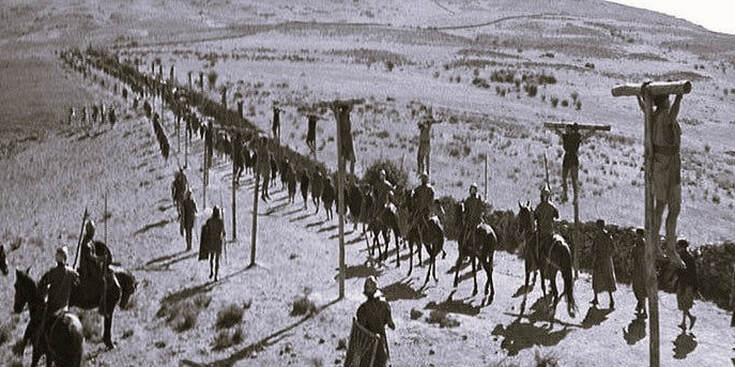
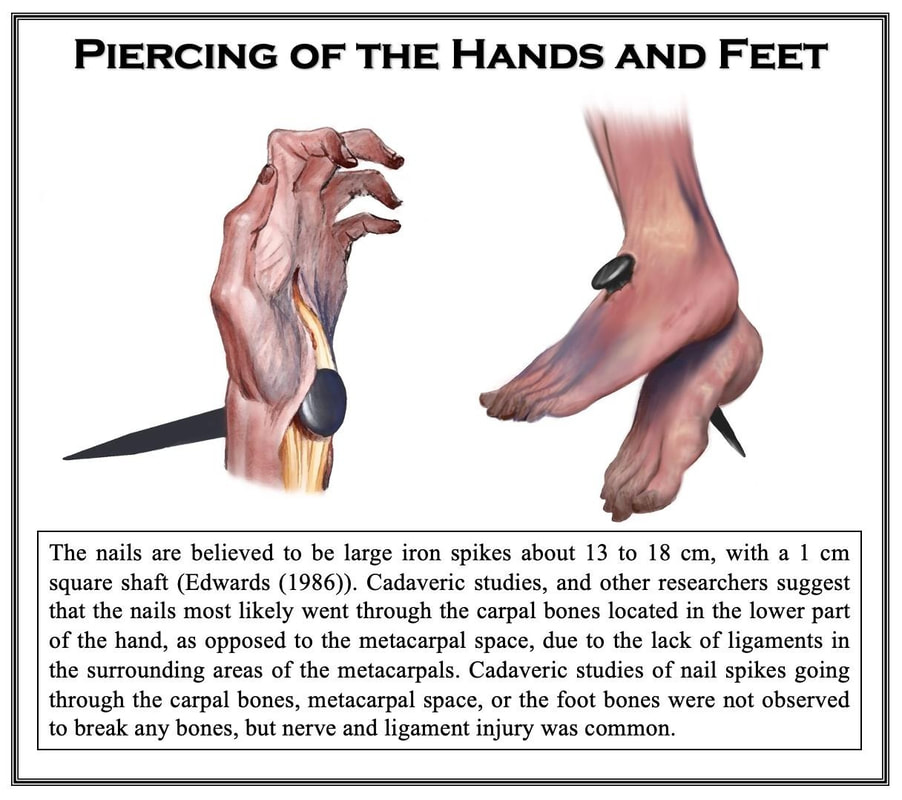


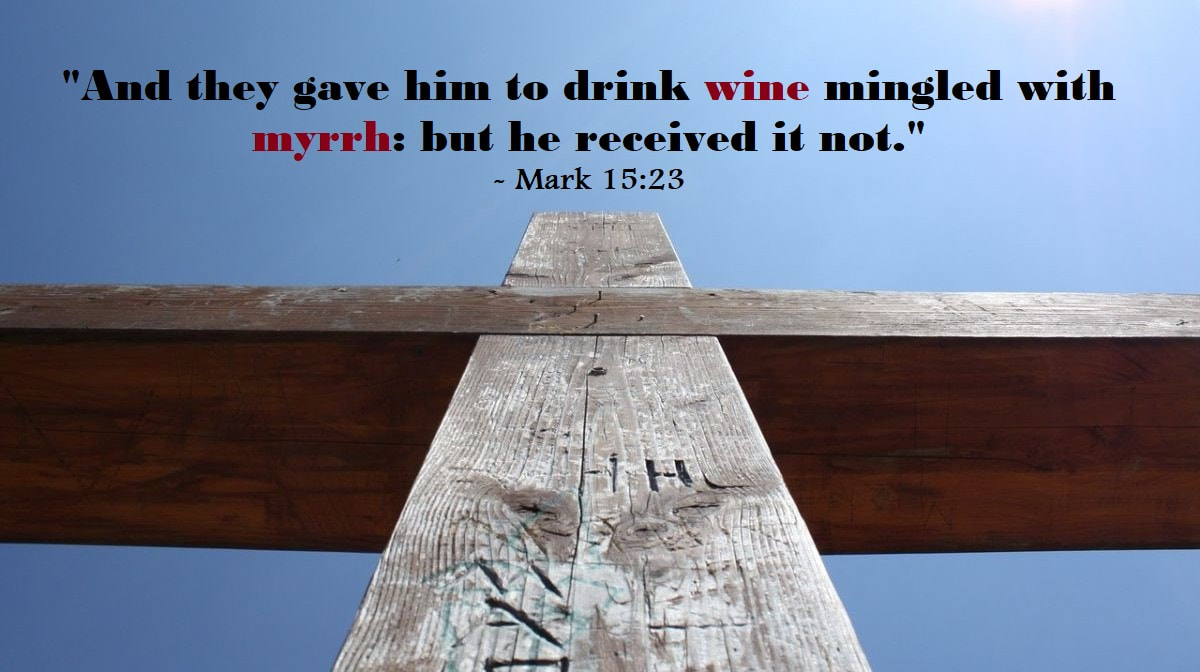
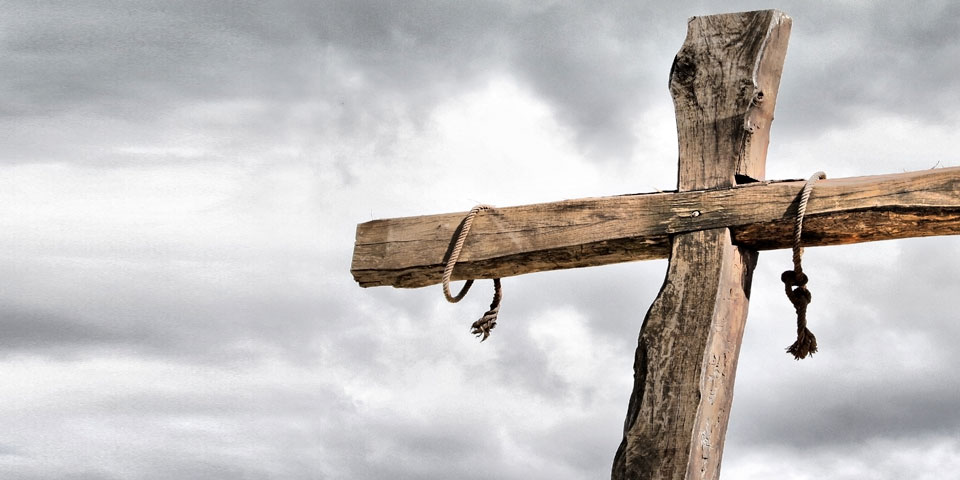

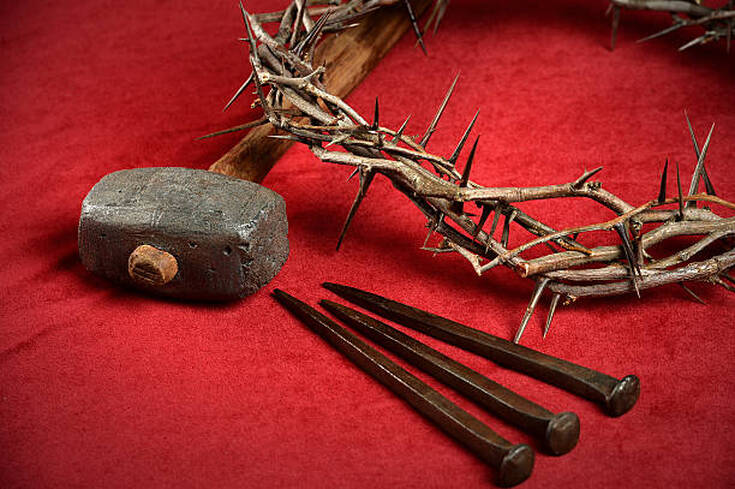

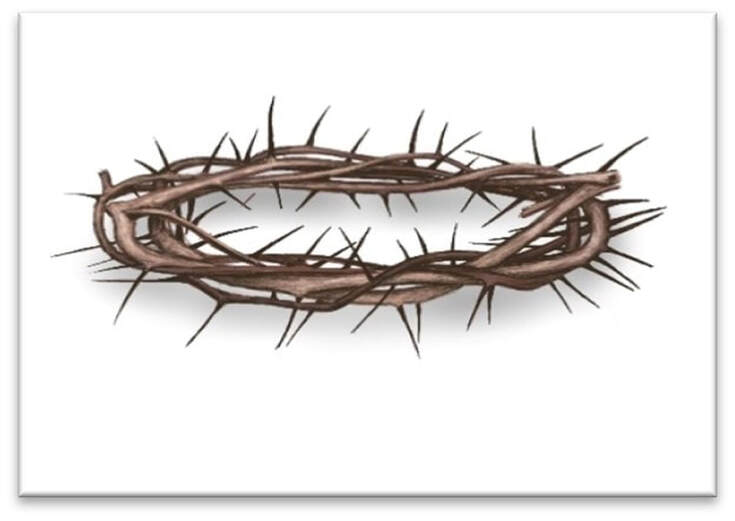

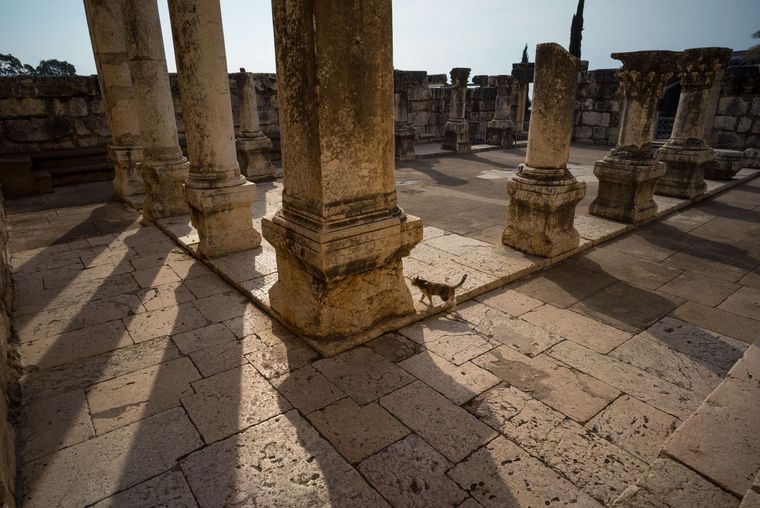
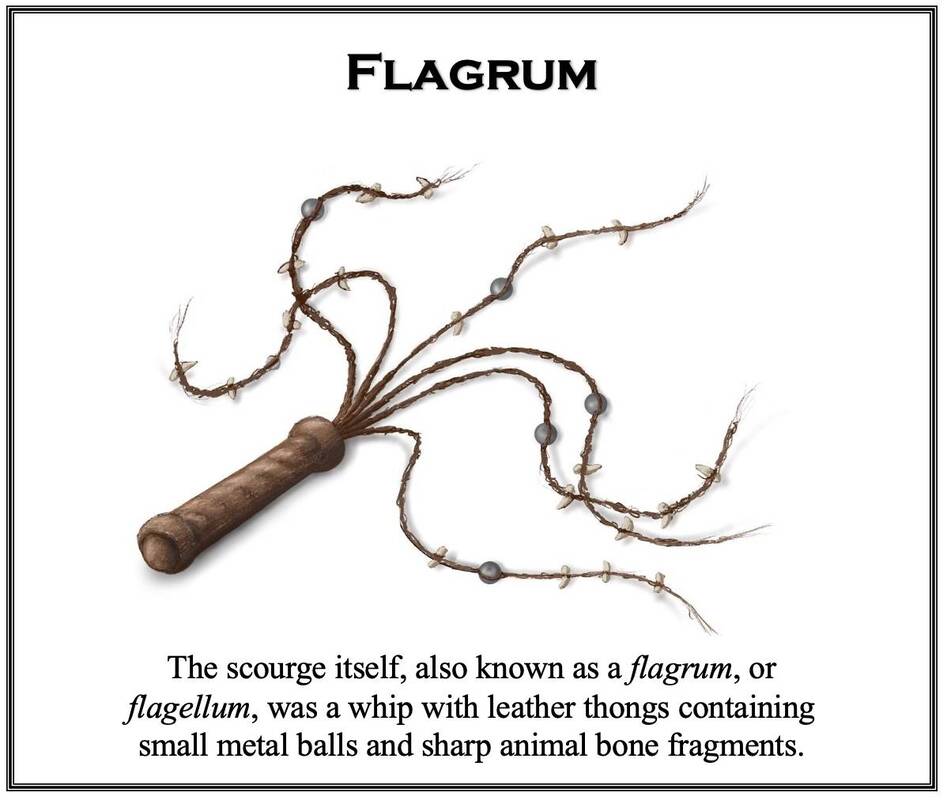
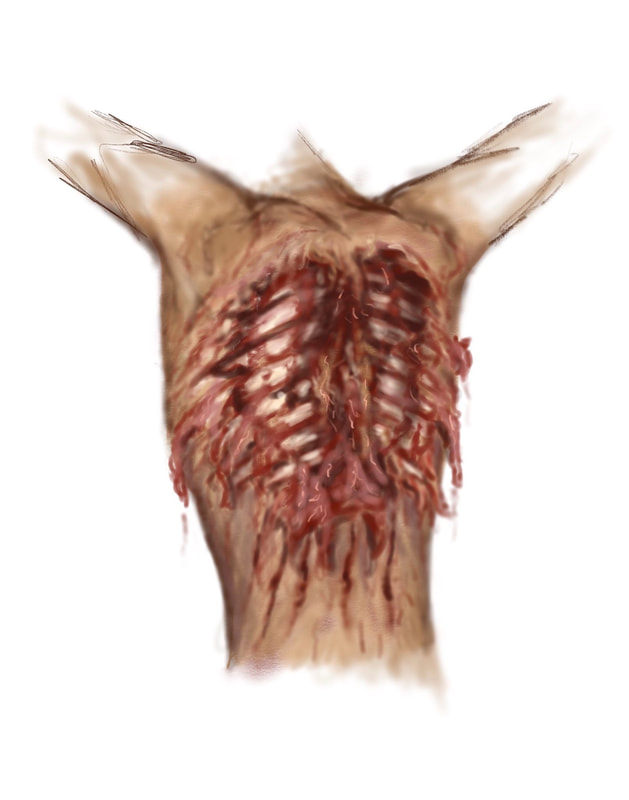
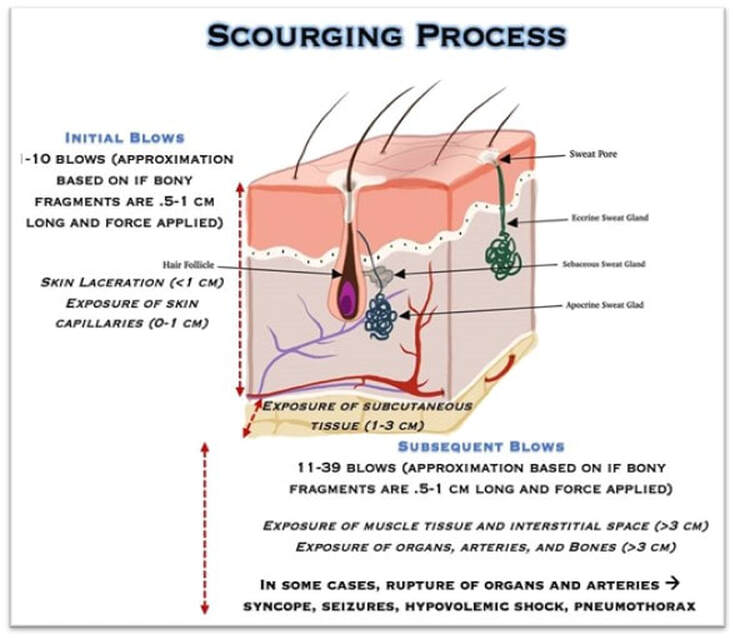
 RSS Feed
RSS Feed